How Tianyar Farmers Have Become Adaptive in a Barren Place
Hot and dusty weather was felt when we arrived in Tianyar Village, Karangasem, on June 22 2021. Despite the barren land, the lack of water and the sun's scorching heat, amazingly, this village has been able to implement permaculture systems. These problems are precisely the reason why they have implemented permaculture and now that they are slowly being solved, the village is even able to increase community income.
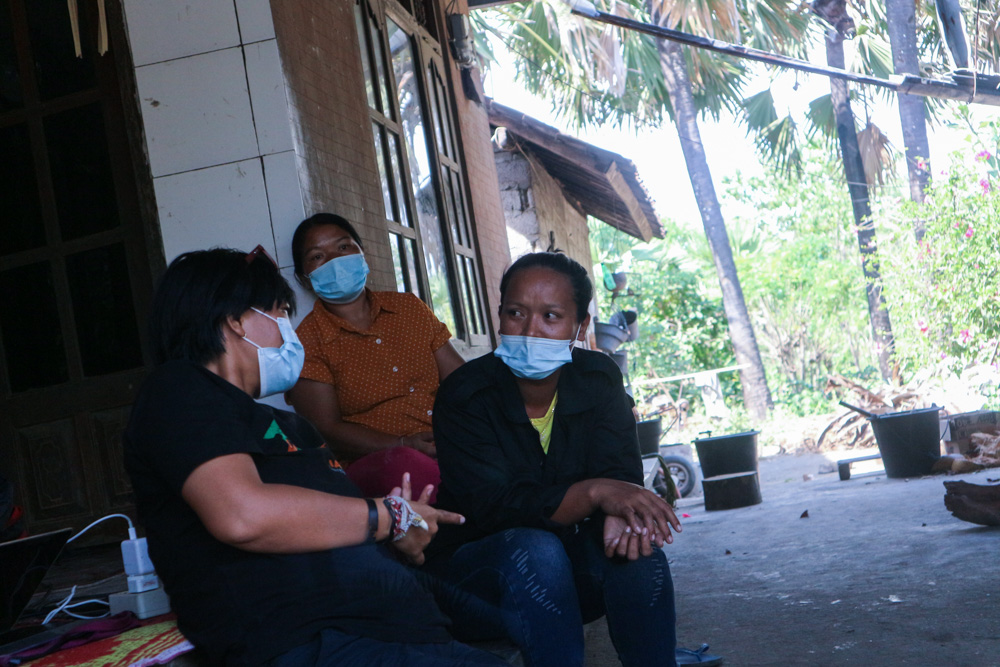
Sayu Komang (IDEP staff) was talking with Ugu, TUK administrator. (Photo: Gusti Diah)
The challenges of water availability, which they have faced for years, have been overcome by rainwater harvesting systems. Despite this, the prolonged dry season often makes community members lose their source of livelihood due to unproductive gardens. To minimize this threat, women in Tianyar Tengah Village made TUK (called Savings for Life). "With TUK, we can save our money and use it when the harvest season ends" said Ugu, who was waiting for other women at the TUK meeting.
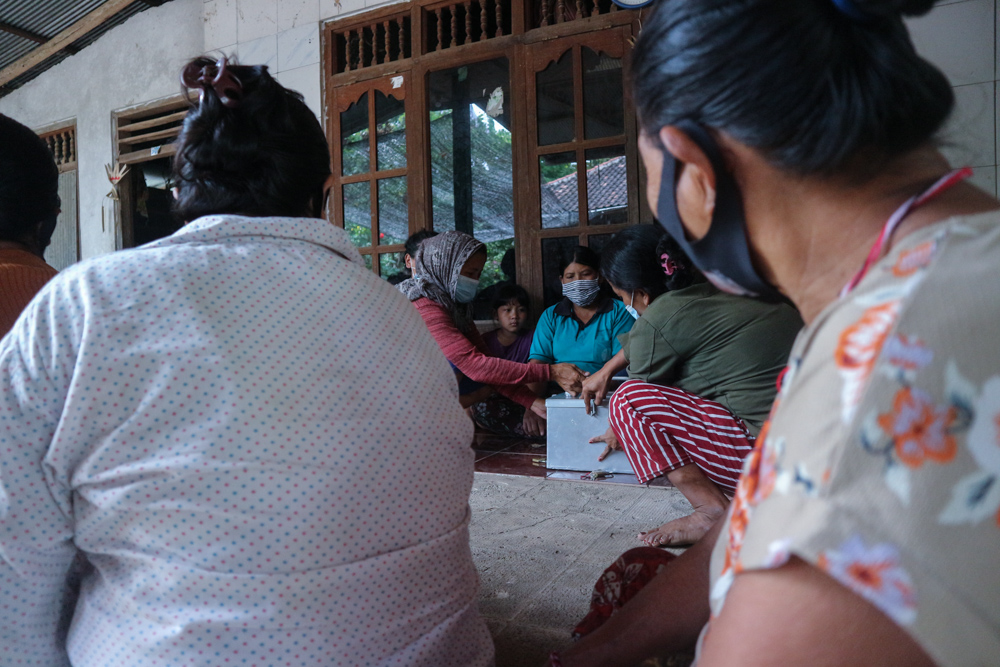
Women were opening the box that includes money-saving and other TUK documents. (Photo: Gusti Diah)
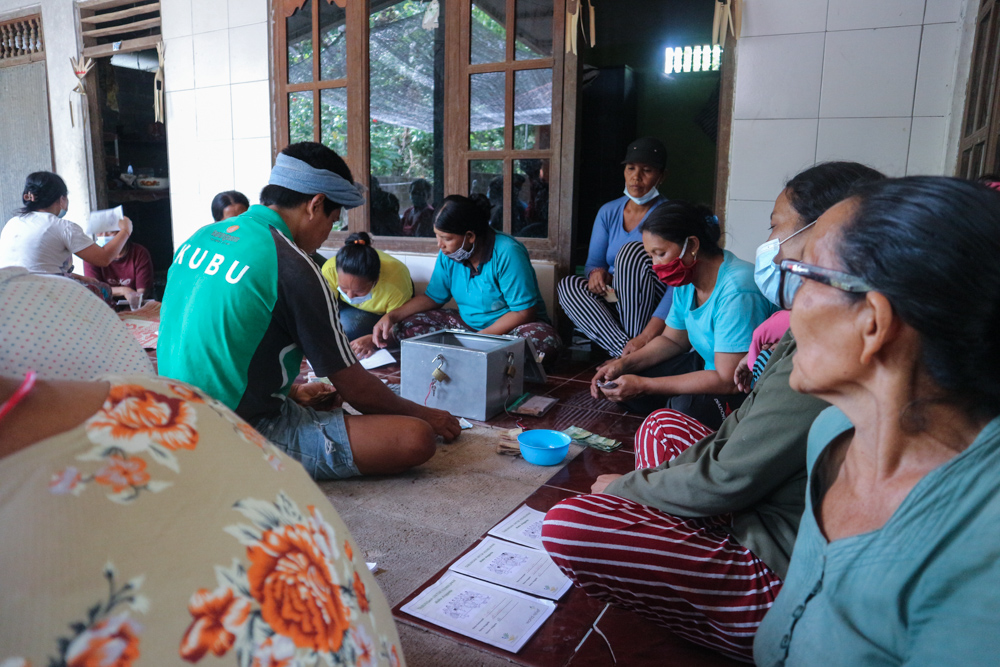
The saving process was witnessed by all TUK members. (Photo: Gusti Diah)
For a long time, the community in Tianyar Village has faced drought after the end of the harvest. To support their livelihood, they produce various things, including brown sugar through the processing of palm sap. Prices for brown sugar set by middlemen make farmers dependent on them and in addition, another challenge is that the brown sugar does not last very long. In response to these issues, a local farmer group has recently built UMKM (Micro, Small and Medium Enterprises), which specifically produces palm sugar from tala palm in their garden. The collective effort, called Bali Mesari, launched at the end of 2020.
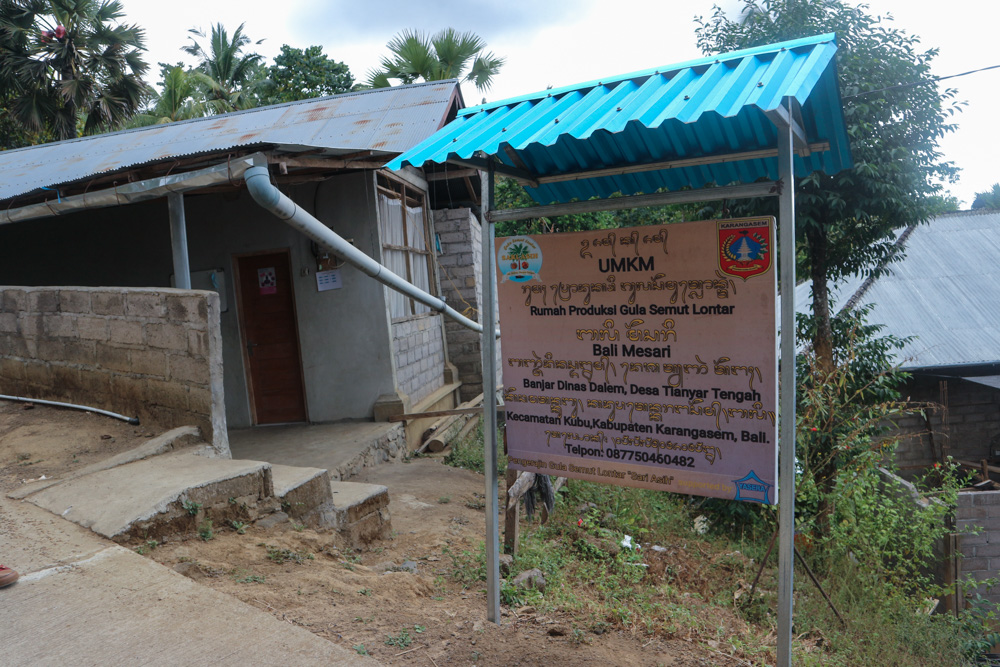
Enterprise own by the community in Tianyar Village (Photo: Gusti Diah)
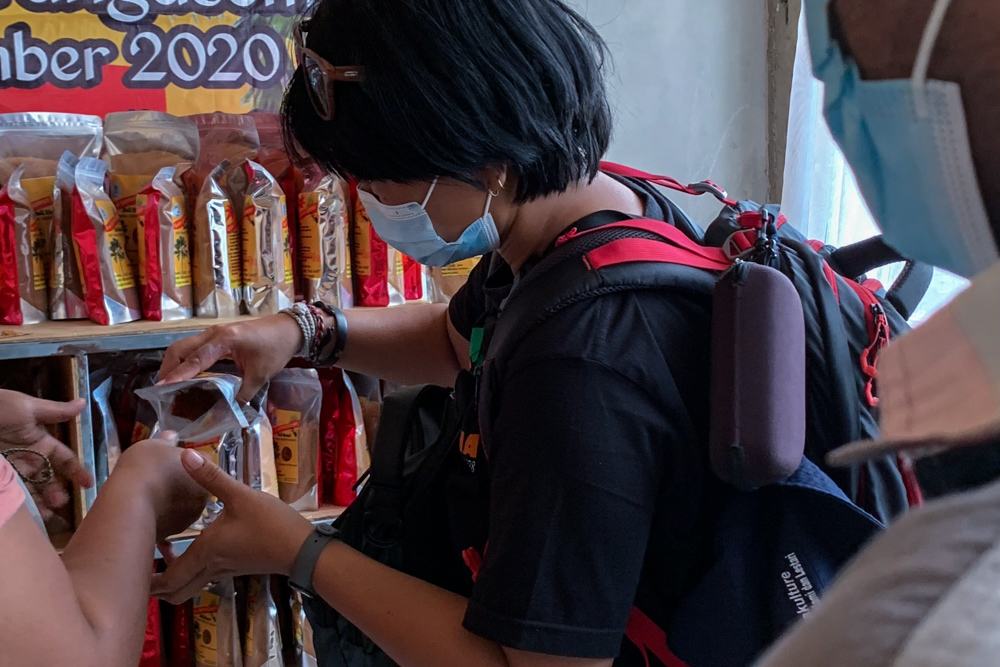
IDEP team were tasted the palm sugar (Photo: Gusti Diah)
Although the COVID-19 pandemic has also affected farmers, they can try to rise together and adapt to the challenges the pandemic has posed. Because it is healthier than white sugar and lasts longer than cube shaped brown sugar, the Bali Mesari brown sugar retains a high value. Since the pandemic, they no longer need to rely on middlemen for the sale of their product because they can sell via online platforms. "Now we sell online in Facebook, for delivery, we can use J&T," said Artana, who met at the Bali Mesari house.
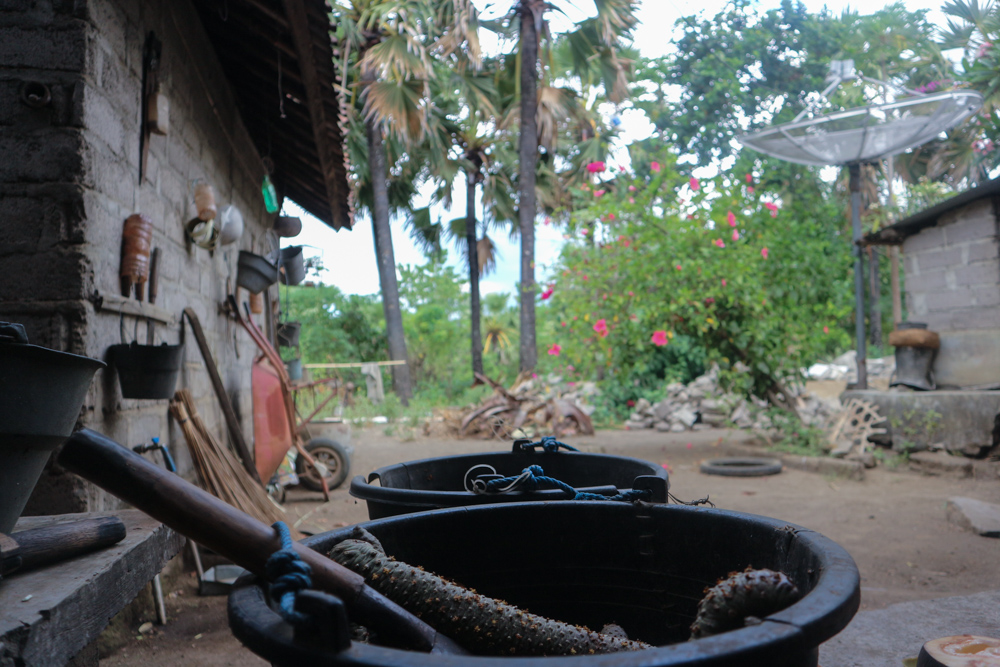
Lontar flowers that produce sap water to be fermented into palm wine or sugar (Photo: Gusti Diah)

Tala pam's fruit that can be consumed and become livestock feed. (Photo: Gusti Diah)
Tala palm is plentiful along the roads of Tianyar Village. They grow everywhere without significant maintenance. Almost all parts of this plant can be utilized, especially the sap which can be turned into palm wine (tuak), wine (arak), and of course sugar. The farmers also know the potential in their area other than tala palms, including sweet potatoes, undis, and moringa. Upon our arrival, they greeted us with a local dish of sweet potatoes which they took from their garden. Unlike sweet potatoes in general, this snack's sweet and thick taste is obtained by boiling sweet potatoes with tuak manis (sweet palm wine) derived from palm sap.
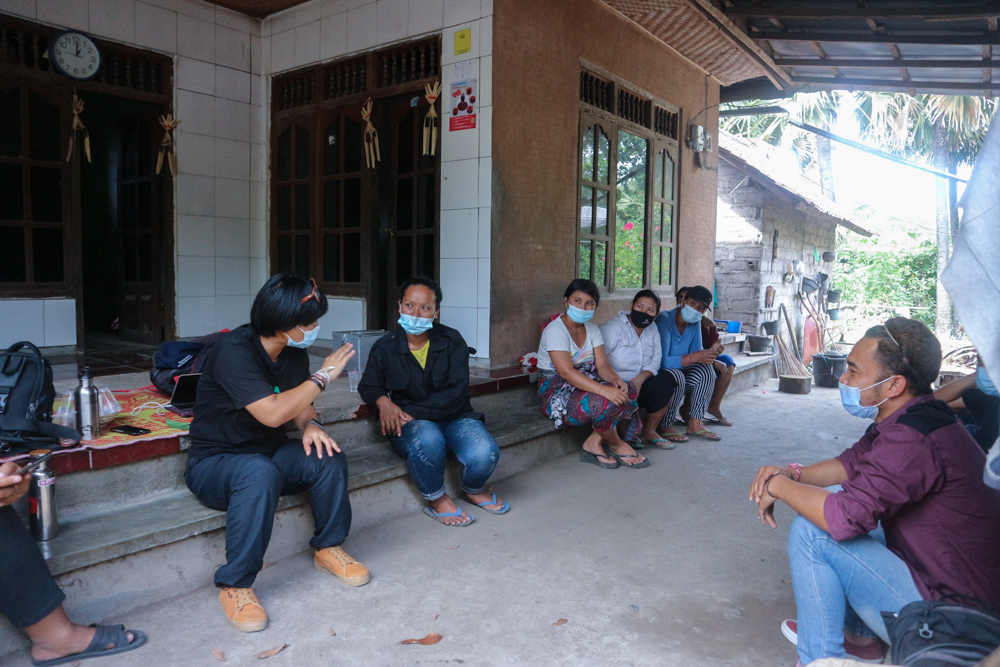
Discussion between IDEP team and Women in Tianyar Village about permaculture. (Photo: Gusti Diah)
Gradually, by utilizing all the potential of their area, farmers in Tianyar Village can become resilient. They realize the importance of collective efforts to deal with difficult times particularly in light of the pandemic. The efforts of the farmers, especially women in Tianyar Village, whether they realize it or not, have applied the principles of permaculture. Their experience and practice has enhanced our knowledge about the implementation of permaculture in Bali. (Gd)
Subscribe to IDEP Newsletters
Give a gift that will change lives. 100% funds charity projects.
|






